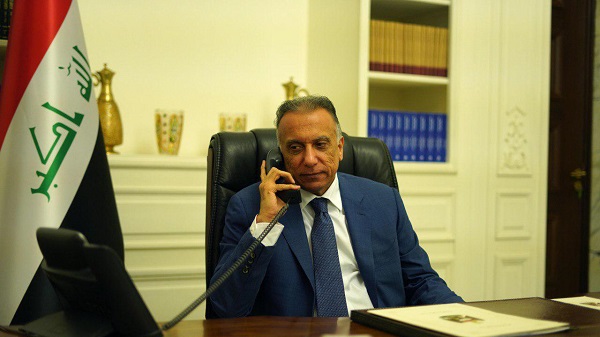Alwaght- Since April, the name of Mustafa al-Kadhimi found a place among the top Iraqi political leaders and figures. When al-Kadhimi, journalist-turned-intelligence chief, was named on April 9 as new Prime Minister, perhaps it was hard to believe that he would be welcomed by the political parties. However, to the surprise of the observers, he on May 7 managed to win the parliament confidence. All of his cabinet members then were approved by lawmakers.
As a classic politician, al-Kadhimi to a large extent was successful in managing the politics and creating a balance between the public demands and the political parties. On July 31, in a televised address he announced snap elections would be held on June 6, 2021.
And now reports emanating from the parliament suggest that some commission members are seeking to create a new party led by al-Kadhimi. The PM looks quite happy with the move. But what does al-Kadhimi seek behind a new political party? To answer this key question, two issues need to be considered.
Al-Kadhimi and understanding partnership necessity in new Iraq
Al-Kadhimi, with regard to his way of securing the PM post and also his performance over the past months, is recognized as a trans-party political leader by the public— in the sense that in the process of his picking as PM only a political necessity brought him to the post and not the support offered to him by a specific party.
According to the world political standards, in the parliamentary systems, picking a figure from a victorious party is something certain and acceptable but the new special political conditions and requirements in Iraq pushed the parties to choose an independent individual to fill the post of PM. With this in mind, it can be definitely noted that al-Kadhimi’s power pillars are shaky and any moment they can fall.
A minimum understanding of the governance in Iraq can lead to the perception that the political parties have an unmatched role in political developments. Now it looks that al-Kadhimi has perceived the point that remaining in his post takes building a partisan coverage. If a new party led by him can secure a majority in the upcoming election, he can guarantee his stay in the position beyond the elections. But if his party has an experience similar to that of the former PM Haider al-Abadi whose party failed to win the majority in the parliament, he will have a difficult way staying in the post.
Understanding modernism discourse in Iraq
Another motivation behind al-Kadhimi’s plan to form a new party is his appreciation of new developments on the political basis of the society. Over the past decades, traditional and tribal relations have been the driving force behind the Iraqi social structure. In other words, the political parties and politics took shape based on the sectarian, religious, and tribal roots. But under the new situation, the Iraqi society is going under heavy transformation.
In the new Iraqi social structure, the country witnessed the rise of a generation that has passed academic education, broke the traditional crust, and developed relative acquaintance with the modernity. The new generation, which seeks employment and creation of sources of income, seeks fresh air to breathe, something represented by a new political party that can lead the demands of the new generation.
Aware of this reality and the demands of the younger generation, al-Kadhimi seeks to create a party leading in addressing such demands as national independence, fight against corruption, youth employment, meritocracy, return to stability, and economic improvement.
In the past, many parties made such demands but al-Kadhimi in the months leading to the election has an opportunity to exhibit his pragmatism to the Iraqi people.
The important point is that al-Kadhimi wants to transcend the sectarian and religious boundaries in his party. To put it differently, he wants his party not to be exclusive for the Shiites. Rather, Sunnis, Kurds, and Turkmens would have a place in its membership and leadership structure. The symbol of this tendency is his last week's visit to Kurdistan. During the visit, he went among Duhok, Erbil, and Sulaymaniyah people, triggering expert suggestions that the move was promotional and electoral.



























